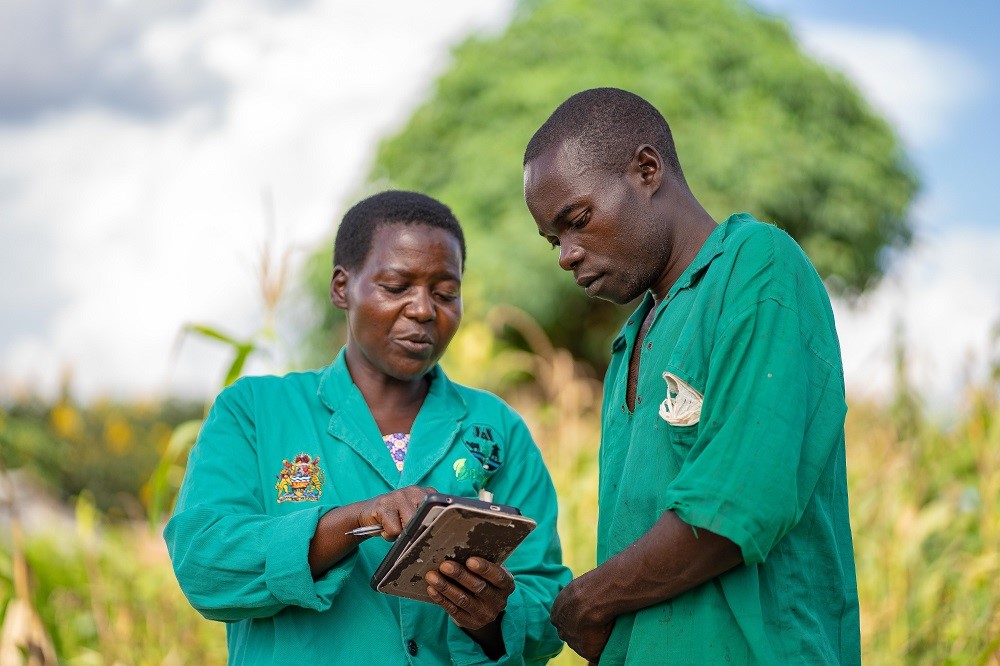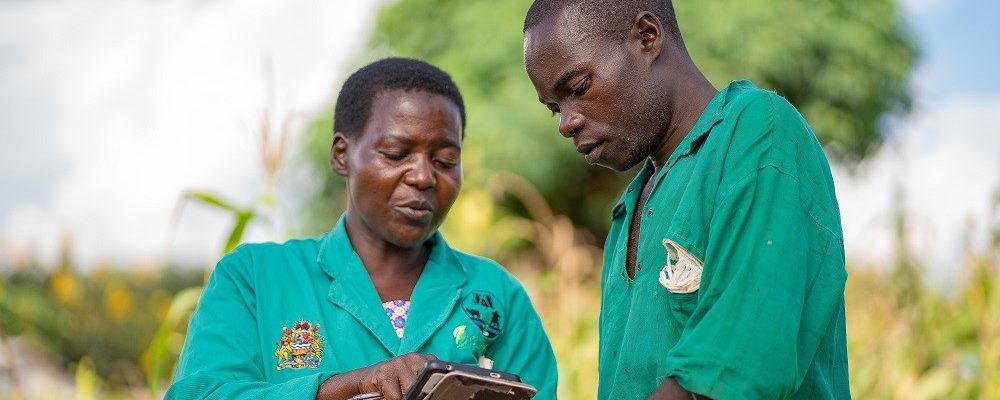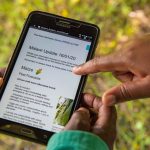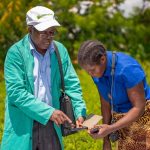The benefits of the CABI-led Pest Risk Information Service (PRISE) in helping smallholder farmers mitigate crop pests outbreaks, thereby boosting their yields and livelihoods, have been highlighted at the CODATA Virtual SciDataCon 2021.

Henry Mibei, CABI’s Manager, Digital Development, based at CABI’s Africa Centre in Nairobi, Kenya, told delegates of the event – organised by the Committee on Data for Science and Technology (CODATA) and the World Data System (WDS) – that pest outbreaks are ‘devastating, respect no political boundaries and are becoming increasingly unpredictable due to climate change.
Mr Mibei gave the example of how PRISE – which combines earth observation technology, the modelling of pest outbreaks and real-time field observations – was able to work in partnership with Precision for Development (PxD) and send SMS information about Fall armyworm to 6,000 farmers in Kenya, of which 60% reported a change in their farming practices as a result.
PRISE helps to improve the livelihoods of smallholder farmers by reducing crop losses caused by pests across four sub-Saharan African countries.
Data from a variety of sources – satellite observations, weather data, geographic data, and details about the spread and biology of pests – are combined in a data cube to run algorithms, which ultimately produce pest risk forecasts. These are used to give farmers timely alerts and advice to help manage local pest outbreaks.
PRISE models risk to crop health from insect pests and plant diseases based on environmental data. Tailored messages are used to provide a risk assessment to growers in particular regions. Advice and support is offered by the Plantwise network and other agricultural extension services, and subscribers are prompted to provide crowdsourced feedback, which is used to validate the model. This feedback loop provides greater confidence in the forecasts.
The CODATA Virtual SciDataCon 2021 conference covered data subjects around themes such as FAIR data – which meets the principles of Findability, Accessibility, Interoperability and Reusability – as well as Data Skills, Data Stewardship, Data Centres and Repositories.
The event also featured Research Infrastructures, Global Open Science Clouds, Platforms and Commons, Data for the Sustainable Development Goals and Disaster Risk Reduction, Data in Cross-Domain Research, Data in the Earth Sciences and Strategic Discussions about CODATA and WDS Initiatives.
Mr Mibei presented under the theme ‘Data for the Sustainable Development Goals and Disaster Risk Reduction. He said, “PRISE is combining satellite data, weather data, geographic data, field observations, and crowdsourced data from subscribers in a data cube to run algorithms which derive pest life-stage and risk indicators (pest and disease forecasts).
“The risk messages and mitigation measures are communicated to users through bulletins and SMS, helping them to take the right pest management action at the most appropriate time.”
Additional information
Main image: An extension worker shares information to help a smallholder farmer in Kenya change his farming practices to mitigate crop pests on his farm (Credit: CABI).
Mr Mibei’s presentation You can see Mr Mibei’s presentation from the conference website here







